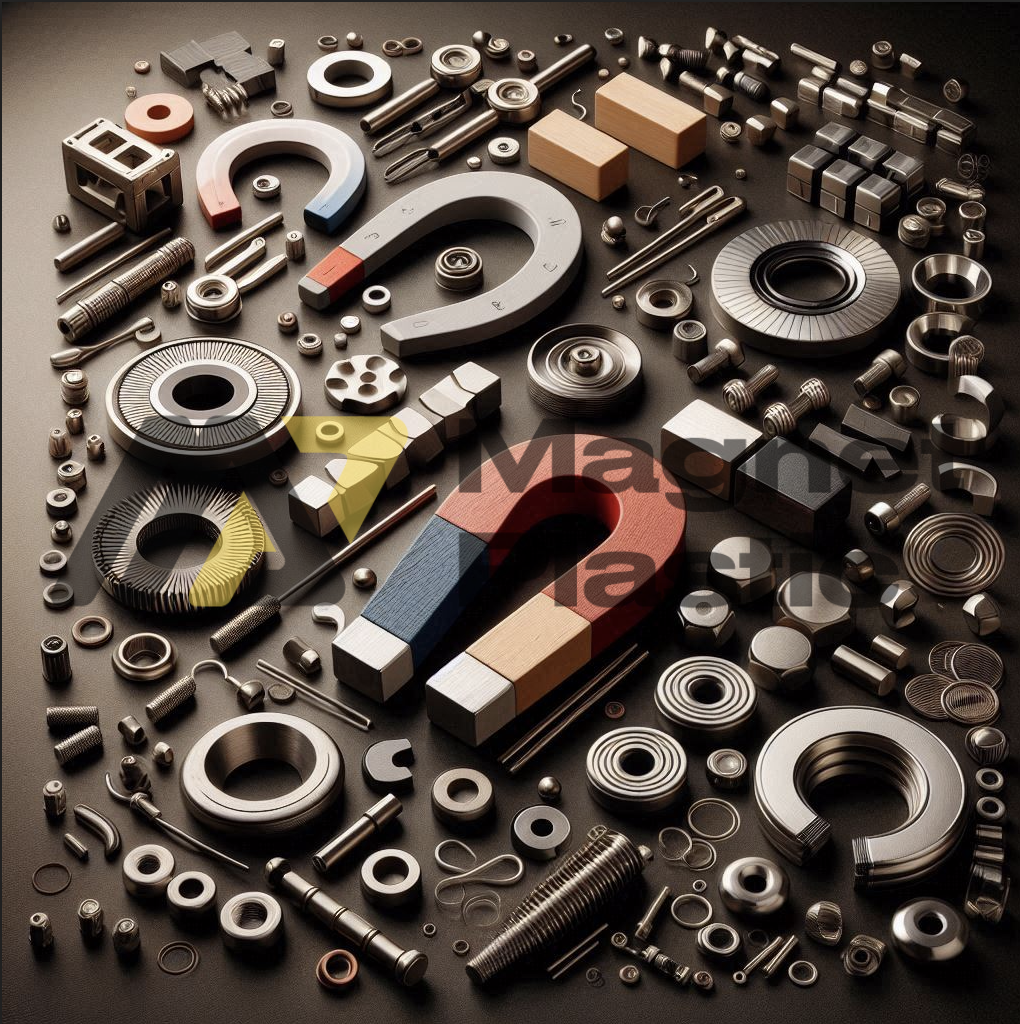How to Choose the Right Magnet for Every Industrial or Home Application
Magnets play a vital role in both industry and the home. From electric motors to clamping systems and office fixtures, their versatility makes them essential tools. However, choosing the right magnet for each application requires considering factors such as material type, magnetic strength, and usage environment. Below are some key criteria for selecting the ideal magnet based on your application.
Types of Magnets and Their Applications
- Neodymium Magnets (NdFeB)
These are the most powerful magnets available on the market and are used in various industrial and technological applications. They are ideal when high strength is needed in a small space.
Applications:
Electric motors and generators
Electronic devices (speakers, hard drives)
Industrial clamping systems
High security magnetic locks
- Ferrite Magnets
They are cheaper and more resistant to corrosion, although less powerful than neodymium magnets.
Applications:
Speakers and household appliances
Magnetic separation systems
Toys and educational materials
Fridge magnets and home organizers
- Samarium-Cobalt (SmCo) magnets
They resist high temperatures and corrosion, making them suitable for extreme environments.
Applications:
Aerospace and military
Temperature sensors
High-performance motors
- Electromagnets
They operate on electric current and allow the force of attraction to be controlled.
Applications:
Cranes and lifting systems in industry
Electronic locks
Medical applications, such as MRIs
Factors to Consider When Choosing a Magnet
- Magnetic Strength
The level of strength required depends on the application. For heavy loads or industrial holding systems, neodymium is recommended. For simpler applications, such as decoration or storage, ferrite is sufficient.
- Size and Shape
Magnets can be found in various forms: discs, rings, blocks and flexible strips. For small spaces, small neodymium magnets offer great power. For larger areas, block ferrite magnets are a good choice.
- Temperature and Corrosion Resistance
If the magnet will be used in high temperature or humidity environments, it is important to choose resistant materials such as samarium-cobalt or with protective coatings.
- Reusability and Safety
In industrial environments, reusable magnets with easy-release mechanisms can be more efficient. In the home, safety should be considered, avoiding small neodymium magnets in the presence of children, as they can be dangerous if swallowed.
Conclusion
Choosing the right magnet depends on the specific application. For household tasks, ferrite or flexible magnets may be sufficient, while in industry, neodymium and samarium-cobalt magnets stand out for their power and resistance. By knowing its properties and uses, you can make an informed decision to optimize its performance in any environment.
